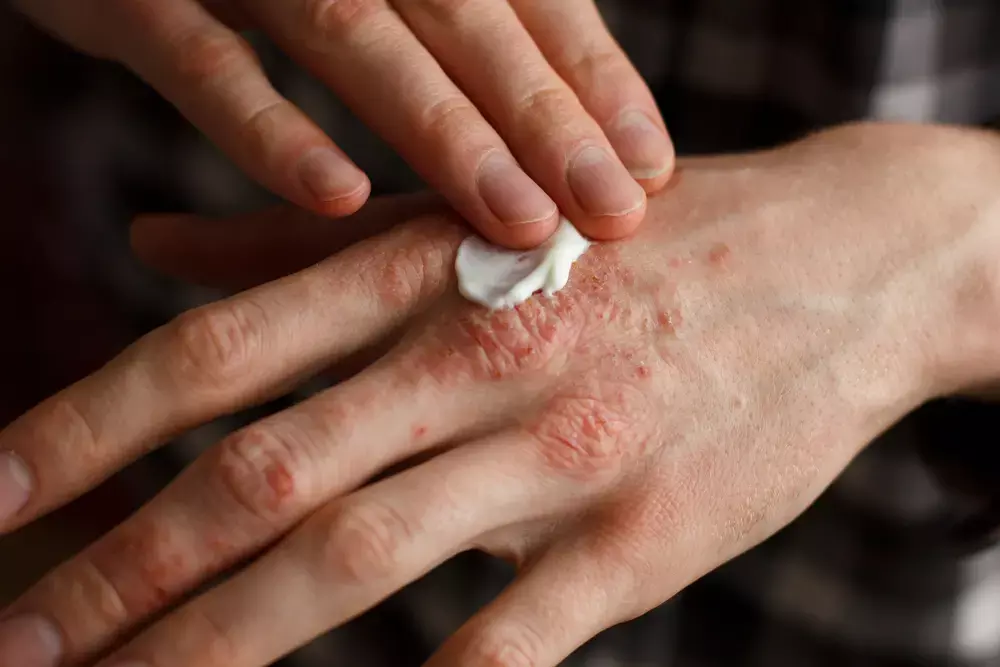- Home
- Medical news & Guidelines
- Anesthesiology
- Cardiology and CTVS
- Critical Care
- Dentistry
- Dermatology
- Diabetes and Endocrinology
- ENT
- Gastroenterology
- Medicine
- Nephrology
- Neurology
- Obstretics-Gynaecology
- Oncology
- Ophthalmology
- Orthopaedics
- Pediatrics-Neonatology
- Psychiatry
- Pulmonology
- Radiology
- Surgery
- Urology
- Laboratory Medicine
- Diet
- Nursing
- Paramedical
- Physiotherapy
- Health news
- Fact Check
- Bone Health Fact Check
- Brain Health Fact Check
- Cancer Related Fact Check
- Child Care Fact Check
- Dental and oral health fact check
- Diabetes and metabolic health fact check
- Diet and Nutrition Fact Check
- Eye and ENT Care Fact Check
- Fitness fact check
- Gut health fact check
- Heart health fact check
- Kidney health fact check
- Medical education fact check
- Men's health fact check
- Respiratory fact check
- Skin and hair care fact check
- Vaccine and Immunization fact check
- Women's health fact check
- AYUSH
- State News
- Andaman and Nicobar Islands
- Andhra Pradesh
- Arunachal Pradesh
- Assam
- Bihar
- Chandigarh
- Chattisgarh
- Dadra and Nagar Haveli
- Daman and Diu
- Delhi
- Goa
- Gujarat
- Haryana
- Himachal Pradesh
- Jammu & Kashmir
- Jharkhand
- Karnataka
- Kerala
- Ladakh
- Lakshadweep
- Madhya Pradesh
- Maharashtra
- Manipur
- Meghalaya
- Mizoram
- Nagaland
- Odisha
- Puducherry
- Punjab
- Rajasthan
- Sikkim
- Tamil Nadu
- Telangana
- Tripura
- Uttar Pradesh
- Uttrakhand
- West Bengal
- Medical Education
- Industry
Most patients with generalized pustular psoriasis flares receive no specific treatment: JAMA

According to a new study published in the Journal of American Medical Association there is a considerable unmet demand for the treatment of generalized pustular psoriasis (GPP) and associated flares, as indicated by patients requesting care in inpatient and emergency department settings, as well as a paucity of sophisticated therapies.
Aside from single-center case studies, nothing is known about widespread pustular psoriasis flares. Carla L. Zema and colleagues undertook this study to evaluate GPP flares and their management, as well as variations between patients with and without flares reported in US electronic health records (EHRs).
This retrospective cohort analysis includes adult patients with GPP found in Optum deidentified EHR data from July 1, 2015, to June 30, 2020. With no coded history of GPP for at least 6 months earlier, the index GPP diagnosis was the first occurrence in the EHR. An algorithm was used to identify flare events in the EHR based on diagnosis coding, care environment, physician type, GPP illness words, and flare terms and features. The primary outcomes were flare events defined by the frequency with which they occurred per patient, the care context in which they were detected, the kind of specialist treating the incident, related symptoms, and the type of therapy administered before, during, and after the episode. Patients were separated into groups based on whether or not their EHR reported a flare episode. The groups were compared based on demographic factors, comorbidity load, health care utilization, and therapies.
The key findings of this study were as follows:
1. 271 of the 1535 individuals with GPP had recorded 513 flares.
2. Patients with flares used virtually all therapy classes more frequently than those without flares, had a 34% higher mean (SD) Charlson Comorbidity Index score, were almost three times as likely to enter an inpatient facility, and were more than twice as likely to visit an ED.
3. Inpatient, outpatient, and emergency department settings all saw flares.
4. Topical corticosteroids, opioids, other oral medications, and oral corticosteroids were the most frequently used therapies during flares.
5. Nearly one-fourth of flare episodes were untreated for dermatological conditions 30 days prior to, throughout, or 30 days after the flare.
In conclusion, this cohort research looked at GPP flares in a sizable group of GPP patients. Flares of generalized pustular psoriasis can be quite severe and frequently necessitate hospitalization or urgent treatment. Despite this high degree of severity, modern therapies are only very seldom employed during flare episodes, leaving both patients with GPP and medical professionals with a substantial unmet therapeutic demand.
Reference:
Zema, C. L., Valdecantos, W. C., Weiss, J., Krebs, B., & Menter, A. M. (2022). Understanding Flares in Patients With Generalized Pustular Psoriasis Documented in US Electronic Health Records. In JAMA Dermatology. American Medical Association (AMA). https://doi.org/10.1001/jamadermatol.2022.3142
Neuroscience Masters graduate
Jacinthlyn Sylvia, a Neuroscience Master's graduate from Chennai has worked extensively in deciphering the neurobiology of cognition and motor control in aging. She also has spread-out exposure to Neurosurgery from her Bachelor’s. She is currently involved in active Neuro-Oncology research. She is an upcoming neuroscientist with a fiery passion for writing. Her news cover at Medical Dialogues feature recent discoveries and updates from the healthcare and biomedical research fields. She can be reached at editorial@medicaldialogues.in
Dr Kamal Kant Kohli-MBBS, DTCD- a chest specialist with more than 30 years of practice and a flair for writing clinical articles, Dr Kamal Kant Kohli joined Medical Dialogues as a Chief Editor of Medical News. Besides writing articles, as an editor, he proofreads and verifies all the medical content published on Medical Dialogues including those coming from journals, studies,medical conferences,guidelines etc. Email: drkohli@medicaldialogues.in. Contact no. 011-43720751


